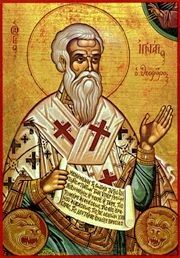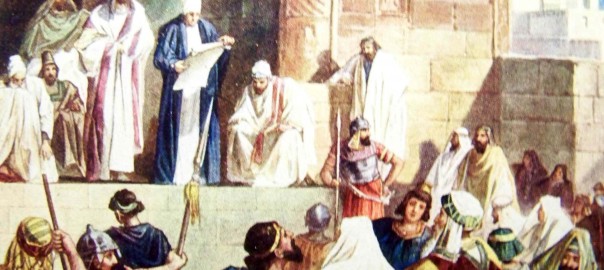Fall is one of those times when we really notice creation. Leaves are changing, the air is getting cooler, the hours of sunlight are rapidly diminishing. It makes us grateful for the bits of life that we still see, because we know that the winter is coming and we will be groaning in eager anticipation of spring.
So maybe we can resonate with what St. Paul is saying in today’s first reading. His basic message is that nothing is perfect yet; we are not where we should be – perfection is still in the future for all of us. We see that our own lack of perfection has repercussions that touch all of creation. There will come a time when God fully reveals everything and we will see ourselves and the entire world through God’s eyes. That is the reward of the Kingdom that we all eagerly hope for. But we are not there yet. We, along with all of creation, groan in anticipation of what will be revealed in those days.
In Masses for the dead, the Third Eucharistic Prayer says, “There we hope to enjoy for ever the fullness of your glory, when you will wipe away every tear from our eyes. For seeing you, our God, as you are, we shall be like you for all the ages and praise you without end, through Christ our Lord, through whom you bestow on the world all that is good.” That’s the promise. It will be like the mustard seed, come to full growth, that becomes a large enough bush to provide shelter for the birds of the sky. It will be like yeast mixed through three measures of flour until it leavens the whole batch of dough.
Put very simply, the best is yet to come for all of us, and for all of creation. In these waning days of the Church year, we continue to long – no, groan – for the day when everything will come to fruition and the Kingdom of God will be revealed in all its glory. We have this as our hope – we don’t see it yet – but as St. Paul says, who hopes for what one sees? We have hope that one day we will enter into the glory of the Kingdom because we will have become holy by being caught up in the One who is holiness itself.



You must be logged in to post a comment.